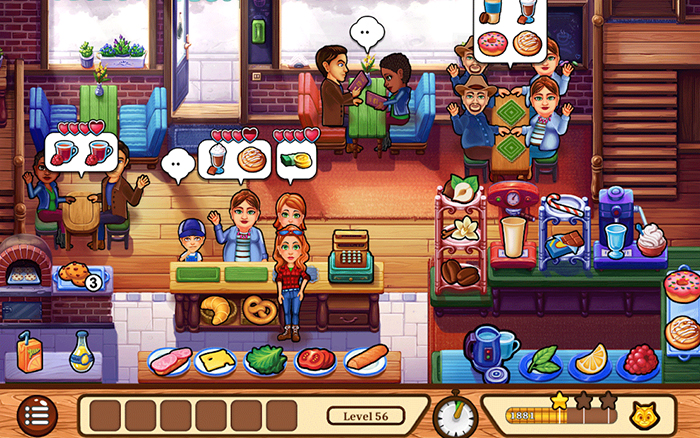Before any big video game release, and during many stages of development, quality assurance teams—QA for short—ensure that everything works as it should. In order to achieve the expected quality, QA testers are bound to break the game in every way possible, looking for bugs and reporting them to developers, usually in platforms such as JIRA.
Working QA on video games might seem like a dream job, one that solely involves testers sitting around all day playing video games. The reality is far more complex and less fun than that idealized version. The actual work involves several hours of repeating a series of patterns, movements, and actions at a certain place and time. There are usually spreadsheets in between to run what are called test cases, keeping track of all the inevitable bugs across different testing stages. An effective QA department allows these bugs to be discovered and squashed before the game ships to players, avoiding the technical hiccups that can ruin an otherwise enjoyable experience.
Despite their invaluable roles, QA testers face many issues across both independent and triple-A studios. The job is often viewed as an easy way to enter the industry and gain experience, but its importance is often ignored, with QA not perceived as equal to other teams.
EGM reached out to over a dozen former and current QA employees to shine a light on everything that comes with the job, popular depictions of it, and its current state within the games industry. Most of the QA personnel we spoke to agreed to go on the record only on condition of anonymity, seeking to avoid conflicts with their former employers and potential backlash when seeking future opportunities.
A fresh college graduate was in need of a job. Her friend worked for a U.S. company in charge of developing and localizing Japanese games, and the recent grad ended up applying for, and obtaining, a QA position working on the company’s visual novels. The job, she quickly came to realize, was awful.
“When I first came on, the company worked on a flat rate system. Everyone got the same amount to play games, check for bugs, and most of all, catch & proofread typos & maintain the in-house style,” she explained. “QA members were expected to play the entire game and be as thorough as they reasonably could. In theory, not bad, right? But we’re talking multi-hour visual novels, proofreading every line in our assigned route, and if yours is the main one—tough luck.”
During her time there, she noticed how her co-workers pushed themselves to do as much work as possible, and she called it extremely time-consuming. In her eyes, the system incentivized those who were anime fans and would go above and beyond for love of the medium. While the flat rate was then changed to hourly pay at $10.50 an hour, the amount of work stayed the same.
Hiring fresh graduates or inexperienced people on a contract basis that want to get their foot in the door of the industry is a rather common practice. In many jurisdictions, contractors can be laid off at any time without being eligible for severance compensation. Companies, triple-A developers in particular, can choose to exclude QA contractors from the game’s credits—and sometimes even perks that other members of the development team enjoy.

Credit: Rockstar Games
Another QA worker we spoke with said she originally applied for a QA role at a triple-A studio on a whim. Since then, she’s worked at multiple triple-A and smaller developers. Over the past six years, her experience has been “tumultuous at best.”
“QA is generally not treated as part of the team,” she said. “They are often segregated from the rest of the studio, which as a result can cause a rift between the departments. If you don’t know the developers on a personal level and you basically tell them they’re wrong for a living it can be taken very personally by them, which in turn can cause them to dislike QA.”
At one company where she worked, contract workers made up the bulk of the staff but were not credited in its games (even the ones on which they’d been working since day one) and were left out of company events. Most of them were students eager to start in the industry, and the company laid off these newcomers before a six-month milestone that would have granted them more rights as employees—only to rehire them a week later.
At the triple-A company, in particular, she said, avoiding crunch was out of the question, and long hours were even expected from QAs. To make it worse, their workspace was clearly divided from the rest of the building, with over 100 employees working in a tight space and groups often having to share the same table.
“QA would work two weeks of early shifts, two weeks of late shifts and one week of night shifts,” she told EGM. “No one in the department had a real weekend as long as they worked there, we were instead assigned rest days which often resulted in staff going for months without seeing family or friends.
“We were situated on the bottom floor and were not allowed access to anywhere else in the building. Upstairs the developers had a game room with pool tables and arcade cabinets which QA were not allowed access to,” she continued. “The air conditioning did not function and there were not enough chairs or computers for everyone, [which] all barely worked and would often shock you when plugging in a USB. There was no game capturing software so staff had to use cameras and phones to literally record their screen, transfer the video to a USB and then upload it to a bug.“
A lead would walk around the office with a notepad asking how many overtime hours QAs were going to put in, she recalled. If they said none, the lead would ask the reason why. “There was no extra money on top of your normal wage for overtime, but rather you would be allocated $5 worth of food from the store [across] the road which the leads would go and buy for you.” In her experience, working with smaller studios made for a better experience overall, and having testers embedded with developers really made a difference.

Credit: Activision
Two QA analysts from a South American mobile games company, one former and the other presently employed, shared similar sentiments, including on the prevalence of overtime culture.
“Rushing our work in order to meet deadlines happens almost every week. Overtime is, thank god, paid properly,” the current employee told EGM. “I love the work environment in my office and the people I work with. That being said, I don’t feel that it’s very organized, and due to our department being the last link in the chain, it’s our asses on the line constantly. I’d like for a bit more effective planning, more fluid communication and more adherence to the time we need in order to deliver the best product possible.”
The former employee worked at the studio for almost a year, and while she was assigned to a sole project and team, she would often help out on other projects when needed. In her experience, “the thing about crunching here was not that we had to do it, but that we weren’t always aware of how much we would have to do until, well, it was the end of the day, or almost the weekend. And every holiday was almost always a working day which meant almost no time to rest. That can take a toll on you.”
She added that she’d been lucky to work with so many incredible people, but the job itself had a sense of urgency that made the experience daunting. “Trying to meet deadlines and having to inform that it won’t be possible because builds were not delivered on time can be nerve-wracking, especially when you’re the last line of defense, accountable for everything that can go wrong,” she said.
Other independent companies have strict rules concerning crunch, compensating employees when it happens or offering either flexible hours or the possibility to work from home. Yolanda Cruz, a current QA intern at GameHouse Spain, told EGM that she’d never experienced crunch in her job.

Credit: GameHouse
“Bosses are really aware that forcing us to do crunch won’t make us productive and will be dangerous for [our] coexistence in the long run. The main thing everybody enjoys in my department is the fact you want to go to the office. You enjoy being there and [working] with your partners.”
Cruz argued that QA testers are sometimes exposed to long hours of work and crunch periods just because they don’t seem to be as important as developers, and most companies find it easy to use internships to fill these roles.
Another current employee at a European studio that self-publishes games said that the studio treats QA positions with more reverence than previous companies he’s worked for, and that overtime isn’t a big issue. “There was a small amount of crunch when I first started, but never to the extent that we were working weekends or staying in all night more than a couple of nights [in] a row. Because of this, I got an extra £1000 in my Christmas bonus, plus an extra day off.”
Sometimes payment schemes vary. A former Microsoft employee worked part time on different projects for over two years, testing everything from Kinect-based platformers and triple-A titles to media apps, under a so-called “zero hours” contract. This meant that the hours of available work were inconsistent and would depend on the current demand.
“One week the agency who I was technically under the employment of would give me hours, the next they wouldn’t; it was very much dependent on what games were coming out,” the QA tester said. Some of these projects involved significant time constraints, sometimes involving complete testing of a game in three days. But, as the tester points out, these instances involved much more limited certification testing, not more in-depth testing of entire games. “I definitely don’t remember it being like what I know as crunch now.”
Many of the sources we spoke to for the story touched on the same issues, primarily a distaste for the way management treats QA testers, which can take a toll on workers over time. While a number of these negative experiences can be attributed to the fact that QA departments often rely heavily on contract labor rather than full-time employees, this distinction isn’t, in itself, a justification for any given practice. If anything, it only clarifies that the struggles facing QA testers are just one part of the much larger ongoing discussion surrounding the game industry and labor rights. The sources we spoke with made it clear that some studios do offer QA personnel better working conditions, though they characterized these situations as rare.
A former QA tester who worked on Titanfall 2 with Respawn Entertainment told EGM that it’s important to hire a team of dedicated employees that get involved with the game from the very beginning. If testers start as soon as the first playable build is available, they can already get a feel for the experience, which will allow them to focus on the quality of the design and provide better feedback when new features are implemented.
He added that, in his experience at both Respawn and other triple-A companies, QA testers were treated as “numbers” rather than as a necessary part of the game development process.
During his time working on Titanfall 2, he mostly saw the bad practices being implemented by management, in which even the bug-tracking software didn’t work as expected. “Respawn hired an outside consultant who is an expert in game testing. I happen to know this guy in person and if anyone knew how to fix the situation, it was him. He wrote his report and Respawn chose to ignore it. They paid this guy to write a report and then threw it away because they thought their broken system worked better. It didn’t.”

Credit: EA
According to the tester, QA contractors weren’t eligible for the same company benefits as developers on staff. There was a clear distinction between the core team and these contractors, who were officially working under Wollborg Michelson Recruiting. Contractors were offered health plans that the QA tester described as bare bones—basically allowing a worker to have something on file so they didn’t get hit with the non-coverage penalty come tax time. When reached for comment, an EA representative said that “QA testers were also offered paid sick leave and other time off through their employer,” referring to Wollborg Michelson.
Contract workers didn’t have access to common areas like the main Respawn parking structure, since they worked out of a different building located apart from the main studio. Similarly, they carried a keycard that only gave them access to their office and the bathrooms outside.
“We were told on the first day where we could and couldn’t go, and that if we were caught within that parking structure or anywhere near the main building we would be fired on the spot,” the tester said. “We signed NDAs. There was no reason for them to hide anything from us. They treated us like we couldn’t be trusted simply because we weren’t actual employees. It was unnecessary and unprofessional. I’ve never been restricted to such places in any game testing gig I’ve had.”
According to EA, these restrictions were designed to reduce the risk of potential leaks from unreleased or unannounced projects the testers weren’t affiliated with. The publisher also denied that Respawn has any official policy for firing contractors found in off-limits areas. “To our knowledge the temporary QAs were never told this,” EA said.

Credit: EA
Throughout the project, Respawn offered contractors opportunities to apply for roles in design, programming, or production, but according to our source, the only positions offered to QA contractors were roles on Respawn’s full-time QA team. EA said that several temporary QA testers were hired into regular full-time positions within Respawn, but did not clarify whether any of these positions were in areas other than QA.
During E3, employees received t-shirts to wear, but those provided to contractors didn’t feature a “RSPN CREW” label. “They wanted us and the world to know that we were in no way allowed to identify ourselves as ‘crew members,’” the tester said.
According to the tester, the highest paid member of his team was only making $14 an hour. EA declined to disclose specific salaries, but said that “more skilled and experienced temporary QA testers were paid a higher amount.”
In another instance the tester recounted, contractors worked through a holiday break when much of the company was off on vacation. EA responded that “temporary QA employees were given the option to work during the break because [Wollborg Michelson’s] policy was to only pay hours they worked.”
The QA tester didn’t deny such a policy existed, but he chose to characterize it differently. “We had an entire month during Christmas where most of the company was out but in order for us to still collect a paycheck to make rent, they were ‘considerate’ enough to allow us to continue working during that month so we could still pay our rent and other bills,” he said.
The former Respawn tester said “the best humiliation” was that he and his fellow workers weren’t allowed to take part in Titanfall 2’s wrap party. “That was a multi-million dollar trip for the company to Maui for 3 days. You can already guess who got to attend (including our lead) and who didn’t (us).”
As new technologies are being incorporated into testing and development, VR has become a progressively a bigger problem for QA. Manufacturers clearly state that short sessions are encouraged to prevent problems such as motion sickness. According to another source who’s worked on triple-A projects and is currently part of an independent studio, working QA for VR projects is a “horrific” job.

Credit: Oculus
“Imagine, just for a moment, going to work and having a small box strapped to your head with two tiny TV screens shining into your eyes from 1 inch away for eight hours a day, all for minimum wage. That is every single work day for me and my coworkers. It’s horrific. It regularly causes medical issues, both mentally and physically for my coworkers, and it’s a huge issue that no one talks about, and really should be.”
Despite everything, she has always loved her work in QA, and argues that the change game development needs for QA testers is cultural.
“It shouldn’t be just treated as a stepping stone job or temporary work; it’s a difficult job and requires a very diverse skill set, and we put in extreme effort for terrible pay because we care. QA testing is its own discipline and it should be seen, treated, and paid as such.”
She added that she believes QA should have an equal voice in the industry, at industry conferences, and in game development programs at schools. The job is essential to the development of a great game, and QA testers interface with literally every aspect of the software that leaves from their companies.
“We have more influence and leverage than people think, and myself and my fellow QA testers should start owning that fact.”
Header image: Illustration by wigo_wiggles for EGM.

Freelance journalist from Argentina. Frustrated bassist. Learned English thanks to video games. He runs Into The Spine, a site that hosts stories around games and what they leave behind, along with supporting both upcoming and established writers. He’s probably listening to music right now, or procrastinating on Twitter.